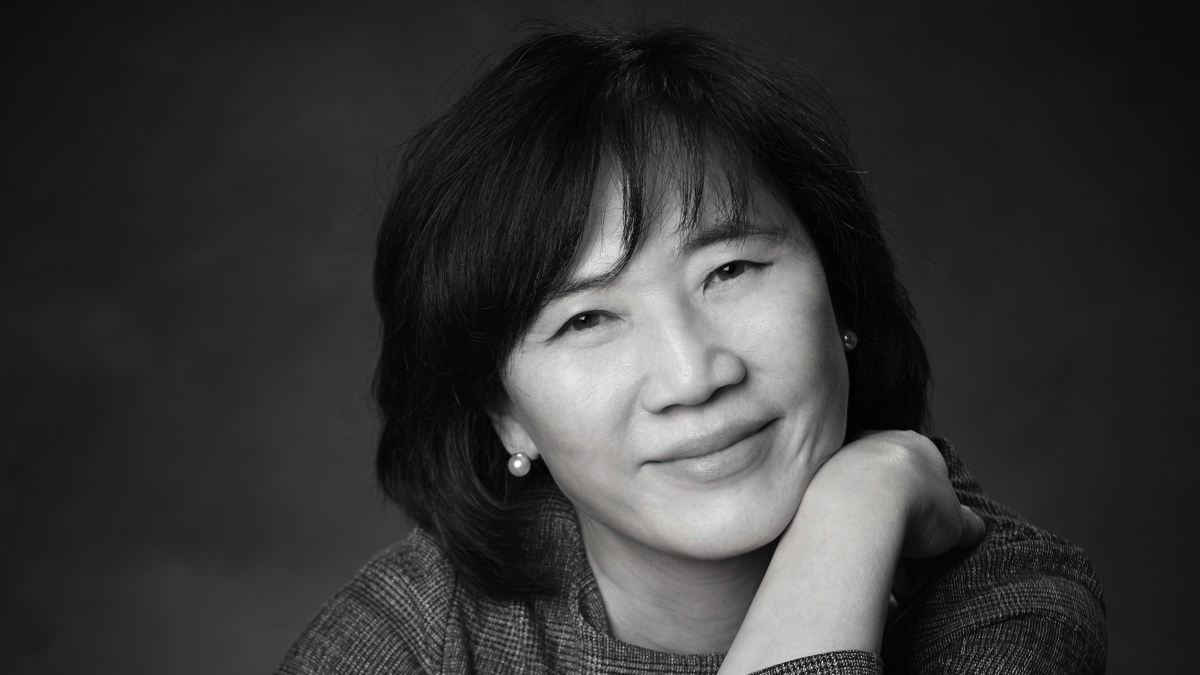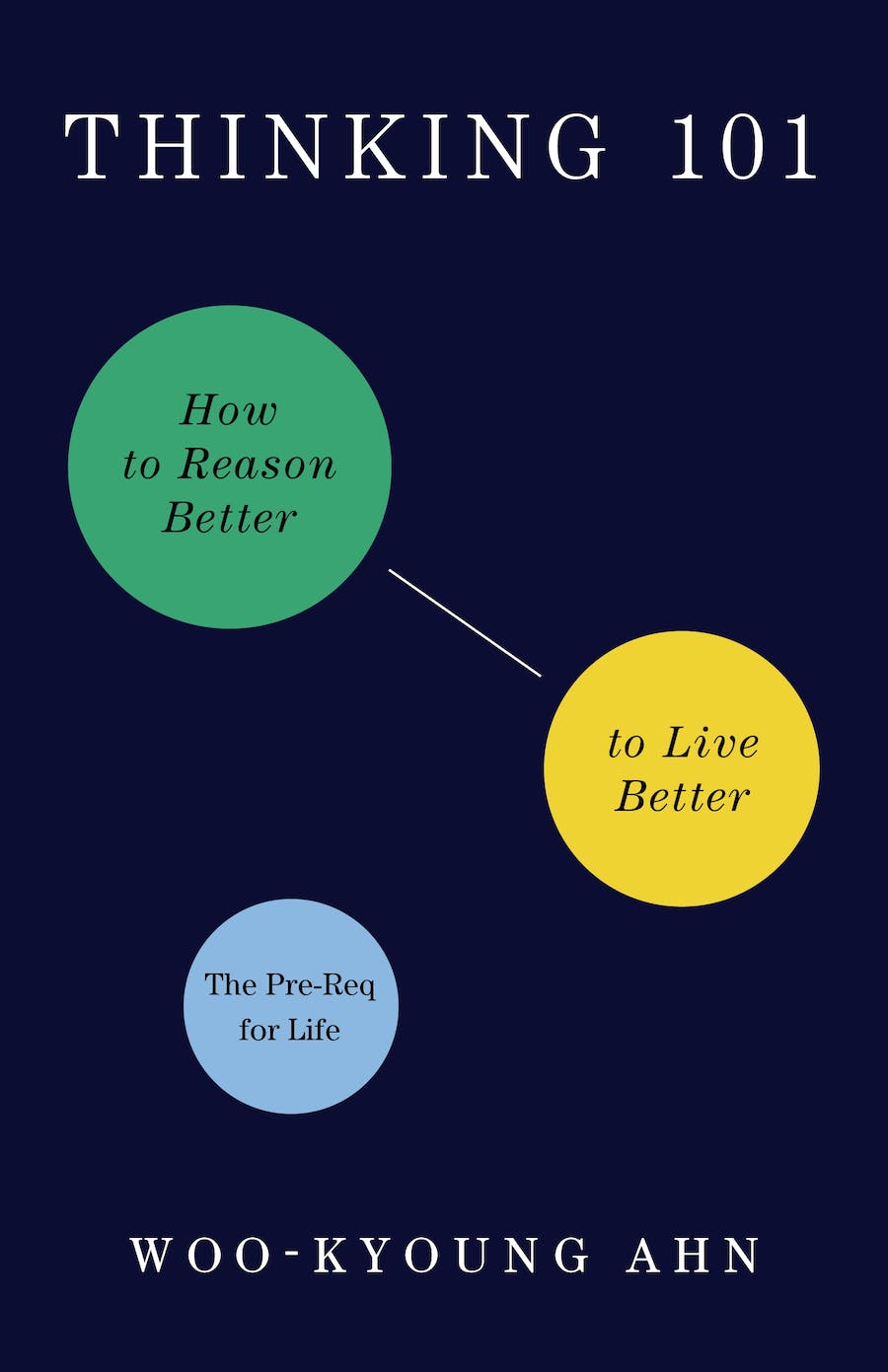Prominent psychologist provides writing advice for ASU students

Woo-kyoung Ahn. Courtesy photo
What can K-pop dance moves teach us about how we can best learn new skills? How can a winning soccer goal illustrate the challenge of assigning credit or blame? Why should we think about the way we shop for holiday gifts before starting a new project?
These questions — and more! — are explored in Yale psychologist Woo-kyoung Ahn's bestselling, nonfiction book "Thinking 101: How to Reason Better to Live Better." On Oct. 26, Arizona State University hosted Ahn in a virtual event for students, during which Ahn shared her process of writing the book as well as some of the theories undergirding it. "Thinking 101" is the 2023–24 ASU Common Read.
The discussion was introduced by ASU Professor Jessica Early, a teacher training specialist who serves as the associate chair of personnel for the Department of English. It was facilitated by Professor Kyle Jensen, a rhetorician who studies the public impact of language. Jensen also directs ASU Writing Programs, a division of the Department of English that offers first-year composition and discipline-specific writing courses universitywide, serving some 23,000 students per year. ASU Writing Programs teachers had the option to offer "Thinking 101" as an additional text in their courses this year.
Ahn is the John Hay Whitney Professor of Psychology and the director of the Thinking Lab at Yale University, where she had devised a course called “Thinking” to help students examine the biases that cause so many problems in their daily lives. It quickly became one of the university’s most popular courses, and Ahn decided to share key insights from the course with a wider audience.

In the book, Ahn demonstrates how “thinking problems” stand behind a wide range of challenges, from common, self-inflicted daily aggravations to pressing societal issues and inequities. Throughout, Ahn draws on research from other cognitive psychologists, as well as from her own studies. "Thinking 101" shows how we can improve not just our own daily lives through better awareness of our biases but also the lives of everyone around us.
Unsurprisingly, ASU's Jensen was interested in Ahn's perspective on the writing process itself. He opened the October conversation by asking, "What problems did you encounter and how did you solve them so successfully?"
Ahn responded by sharing that she had two initial hurdles: first, that she's not a native speaker of English, and second, that she had never read anything about psychology that was geared toward the general public.
She said she started by consulting a couple of recommend books in her field that had successfully engaged wider audiences: "Influence: The Psychology of Persuasion," by ASU's own social psychologist Robert Cialdini, and "Maybe You Should Talk to Someone: A Therapist, HER Therapist, and Our Lives Revealed," by Lori Gottlieb. Of the latter, Ahn said she was surprised that "it was hilarious and I cried in the middle of it."
She said after reading those two books, "I got the point of it."
Ahn proceeded to write "Thinking 101" as if she were talking to a class of 500 students — which was actually a regular thing for her, since the class at Yale was so popular. Once she had completed a draft, she got help from editors and proofreaders with grammatical items and specific English language usage issues.
For more of Ahn's conversation with ASU faculty and students from this event, visit the Department of English YouTube channel or watch here:
In 2022, Ahn received Yale's Lex Hixon Prize for teaching excellence in the social sciences. Her research on thinking biases has been funded by the National Institutes of Health, and she is a fellow of the American Psychological Association and the Association for Psychological Science. "Thinking 101" is her first book. The Common Read event with Ahn was hosted by ASU Writing Programs in the Department of English with support from The College of Liberal Arts and Sciences.
More Science and technology

ASU-led space telescope is ready to fly
The Star Planet Activity Research CubeSat, or SPARCS, a small space telescope that will monitor the flares and sunspot activity…

ASU at the heart of the state's revitalized microelectronics industry
A stronger local economy, more reliable technology, and a future where our computers and devices do the impossible: that’s the…

Breakthrough copper alloy achieves unprecedented high-temperature performance
A team of researchers from Arizona State University, the U.S. Army Research Laboratory, Lehigh University and Louisiana State…

